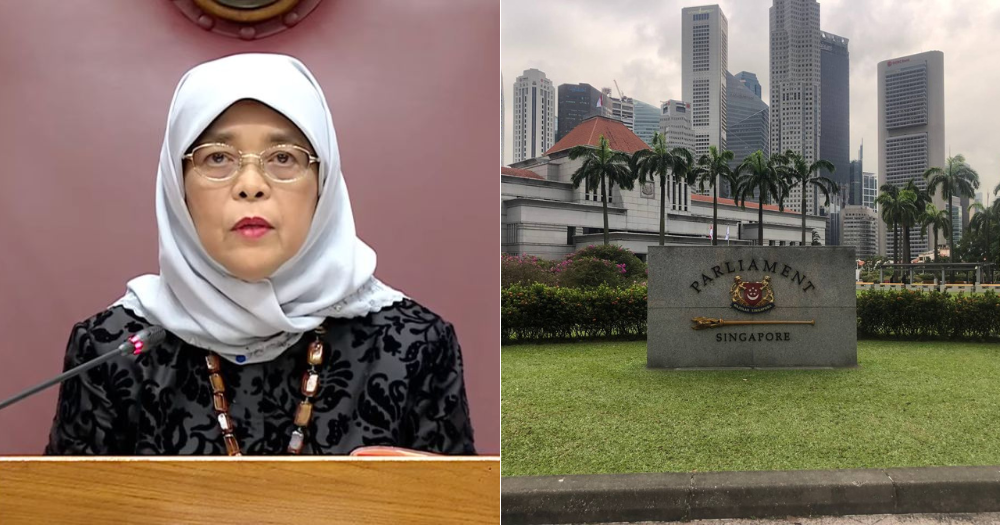Follow us on Telegram for the latest updates: https://t.me/mothershipsg
President Halimah Yacob said that while meritocracy has long provided Singaporeans with opportunities to excel, Singapore must not allow "advantages and privileges to become entrenched and persist over generations".
Delivering the President's Address in Parliament on Apr. 10 for the opening of the second session of the 14th Parliament, Halimah touched on various issues concerning the future of Singapore.
She emphasised the need to rethink Singapore's approach to education and work, calling for a "broader and more open" form of meritocracy that "works well for all Singaporeans".
"We will ensure that Singapore remains an open and inclusive society, where we uplift everyone with opportunities throughout their lives and interact with one another as equals, regardless of our backgrounds."
S'pore must not allow privileges to persist over generations
Halimah pointed out that meritocracy has long been the organising principle of our society.
"But as we prosper as a society, those who have already done well will naturally seek to pass on their advantages to their children," she said.
"This is why absent major upheavals, all societies tend to become more stratified and less socially mobile over time," Halimah added. She said the government will do their utmost to combat this tendency, and not allow advantages and privileges to become entrenched and persist over generations, as this would weaken and fraction society.
In order to ensure a broader and more open meritocracy that works well for all Singaporeans, the approach to education and work requires a rethink.
More opportunities for those who "start with less"
Halimah called for "expanded opportunities throughout life for all" despite one's "background and circumstances."
She pointed out that Singapore will provide more resources to support those who start their lives with less and recognise the competitive stresses built up in our education system, especially amongst certain segments of society.
"We will provide everyone with access to a good education and many chances in life to learn and improve. But let us not be unwittingly drawn into an educational arms race and end up worse off as a society."
Rethinking how society rewards different skills and talents
Halimah also called for a change in how society rewards different skills and talents and recognises the full range of pathways to success.
"We should accord greater value to those who are skilled with their hands and contribute through their technical and practical abilities, as well as those with the social and empathetic traits to excel in jobs such as caregiving or community service."
She emphasised that every Singaporean must have the opportunity to take on work they find fulfilling and meaningful, build on their talents, and be fairly rewarded for it.
Increase support for the disadvantaged and vulnerable
Halimah highlighted that Singapore will also step up support for the disadvantaged and vulnerable to ensure Singapore remains an open and inclusive society.
This includes uplifting lower-income workers and families to empower them to take the initiative to improve their own lives.
In addition, there will be enhanced support for persons with disabilities so they can "pursue their aspirations and participate fully as contributing members of society".
Background
The President's Address is a major speech marking a new session of Parliament.
Though it is delivered by the President, it is typically crafted by the government of the day to outline the priorities and policies for the new term of Government.
This tradition is a legacy of the Westminster system of government.
At the State Opening of Parliament in the United Kingdom, the Queen, as the country’s monarch and Head of State, previously read out the Queen’s Speech which is prepared by the government.
With the accession of King Charles upon the death of Queen Elizabeth, it will be his turn to read out the King's Speech next.
Related stories:
Top photos via Fiona Tan and MCI YouTube
If you like what you read, follow us on Facebook, Instagram, Twitter and Telegram to get the latest updates.
